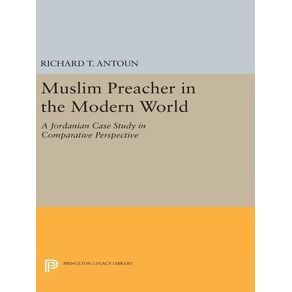Richard Antoun documents and exemplifies the single most important institution for the propagation of Islam, the Friday congregational sermon delivered in the mosque by the Muslim preacher. In his analysis of various sermons collected in a Jordanian village and in Amman, the author vividly demonstrates the scope of the Islamic corpus (beliefs, ritual norms, and ethics), its flexibility with respect to current social issues and specific social structures, and its capacity for interpretation and manipulation.Focusing on the pivotal role of preacher as culture broker, Antoun compares the process of the social organization of tradition in rural Jordan with similar processes outside the Muslim world. He then highlights the experiential dimension of Islam. The sermons discussed range over such topics as family ethics, political attitudes, pilgrimage, education, magic, work, compassion, and individual salvation.Originally published in 1989.The Princeton Legacy Library uses the latest print-on-demand technology to again make available previously out-of-print books from the distinguished backlist of Princeton University Press. These editions preserve the original texts of these important books while presenting them in durable paperback and hardcover editions. The goal of the Princeton Legacy Library is to vastly increase access to the rich scholarly heritage found in the thousands of books published by Princeton University Press since its founding in 1905.

